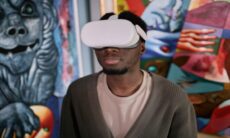ByteDance Prepares TikTok-Backed AR Glasses to Challenge Industry Giants
ByteDance, the Chinese tech conglomerate behind the viral sensation TikTok, is preparing to launch its own mixed reality glasses, marking a bold step into a competitive market currently dominated by tech powerhouses such as Apple and Meta. Despite mixed-reality headsets failing to achieve widespread adoption in the US and other Western markets, ByteDance remains optimistic about the future of augmented reality and intends to push ahead with development through its startup arm, Pico.
In a market where Apple’s Vision Pro and Reality Pro, Microsoft’s HoloLens, and Meta’s Google Glass have each made varying impacts, ByteDance sees a fresh opportunity. While Meta has partnered with Ray-Ban and introduced the Oakley NHTS in pursuit of a more wearable AR experience, ByteDance appears to be taking cues from these designs. The company’s vision involves producing sleek, lightweight eyewear that balances form and function, integrating advanced AR chips to deliver improved performance and reduced latency.
Reports from The Information suggest that ByteDance is already in the process of developing proprietary augmented reality chips. These chips are expected to mirror the functionality of Apple’s R1 chip, processing sensor data at speed to reduce lag between user actions and what is visually rendered. This move hints at ByteDance’s desire to create a high-performance device that addresses key user pain points around responsiveness and immersion, critical aspects where many previous AR glasses have struggled.
The development is being spearheaded by Pico, ByteDance’s virtual reality-focused subsidiary. Although the company has not disclosed how far along the project is, the direction appears to be inspired by existing market models like the Bigscreen Beyond 2. These systems often offload processing power to external units connected by cables, allowing the glasses themselves to remain lightweight. Pico seems to be exploring a similar structure, which could appeal to users who prioritise comfort without compromising on functionality.
However, ByteDance’s plans are complicated by ongoing geopolitical tensions. The strained relationship between China and the United States, centred particularly around the TikTok platform, could significantly impact any future product launches in the American market. TikTok has long been a point of contention, with the US government under both Democratic and Republican leadership raising concerns about data privacy and national security.
Under former President Joe Biden’s administration, legislation was proposed that would require ByteDance to either divest TikTok or face a potential ban. Although enforcement timelines have shifted with the political landscape, particularly following the return of Republican President Donald Trump, ByteDance continues to operate under significant pressure. Trump recently indicated that a buyer for TikTok had emerged, suggesting progress in sales negotiations. Yet until a final agreement is reached, ByteDance remains at risk of losing access to one of the world’s most lucrative digital markets.
This uncertain backdrop casts a shadow over the mixed-reality glasses initiative. While the global market for AR wearables continues to grow, particularly in Asia and parts of Europe, the inability to access the US market could limit commercial viability and scale. ByteDance appears undeterred, pressing ahead with its technological ambitions, though timelines for product debut remain unknown. No official release window has been set, and it remains unclear whether a prototype exists or if the project is still in early conceptual stages.
Despite these challenges, ByteDance’s entrance into the augmented reality field signals its continued desire to compete with Silicon Valley’s biggest players, not only in the world of social media but also in immersive technology. As the company expands its portfolio beyond TikTok, CapCut, and Toutiao, it aims to cement its role as a serious contender in the next frontier of digital innovation.
The coming months will likely determine whether ByteDance can break into this complex market with a product that stands apart from earlier attempts and whether it can do so in the face of growing regulatory scrutiny abroad. For now, industry watchers will be keeping a close eye on Pico and ByteDance’s next move.










